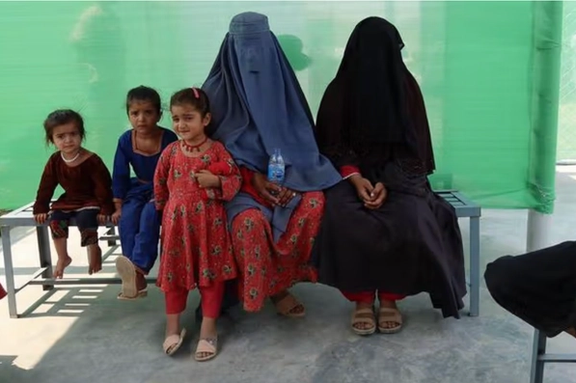Returning Afghan Women Face Severe Discrimination, Says UN

The UN High Commissioner for Refugees (UNHCR) has stated that Afghan women and girls are being systematically excluded from education, employment and public life.

The UN High Commissioner for Refugees (UNHCR) has stated that Afghan women and girls are being systematically excluded from education, employment and public life.
The UN agency stressed that conditions are even worse for those returning from Iran and Pakistan.
According to the report, since 2021 returning women’s access to essential services has sharply declined. Data shows that 21 precent of returnee women struggle to access clean water, compared with 14 precent among non-returnees. In addition, 22 percent face barriers to public health care, while 28 percent encounter obstacles to receiving legal services.
UNHCR said returning women are more isolated and face greater psychological stress. Only 19 percent said they have daily contact with other women, while 40 precent described their mental health as “very poor.”
Critical Situation for Female-Headed Households
The report said female-headed households carry heavier burdens. Sixty-one percent reported working long hours that damage their wellbeing, while food insecurity was higher than in male-headed households.
The absence of identity documents was identified as one of the biggest barriers to integration. Two out of three families said their members lacked property or civil documents. Requirements for women to be accompanied by a male guardian, along with limited knowledge of administrative processes, were cited as major obstacles to obtaining identity papers.
The report also found that women have minimal representation in local structures, with most decisions made by men. Returnee families reported facing more threats, denial of services and discrimination compared with host communities.
UNHCR warned that many cases of domestic violence and forced marriage go unreported, with women more likely to seek help from local elders or relatives rather than from courts or police.
Girls Allowed to Study Are Dropping Out
The report said girls’ access to education has declined significantly. Overcrowded schools, long travel distances and early marriage were identified as major causes of dropout. Under Taliban rule, girls are permitted to study only from grades one to six.
UNHCR said that addressing these challenges requires working with local councils and religious leaders, raising awareness, strengthening referral services, creating support networks, providing women-focused legal services and cash assistance, expanding psychosocial support, and creating livelihood opportunities in cooperation with the private sector.
Many international organisations have blamed the Taliban for this situation, stressing that the group’s restrictions on women’s education, work and freedom of movement have paralysed their daily lives.
Reports have consistently noted that Afghanistan is currently among the worst countries in the world for women, where the fundamental rights of half the population are systematically violated.